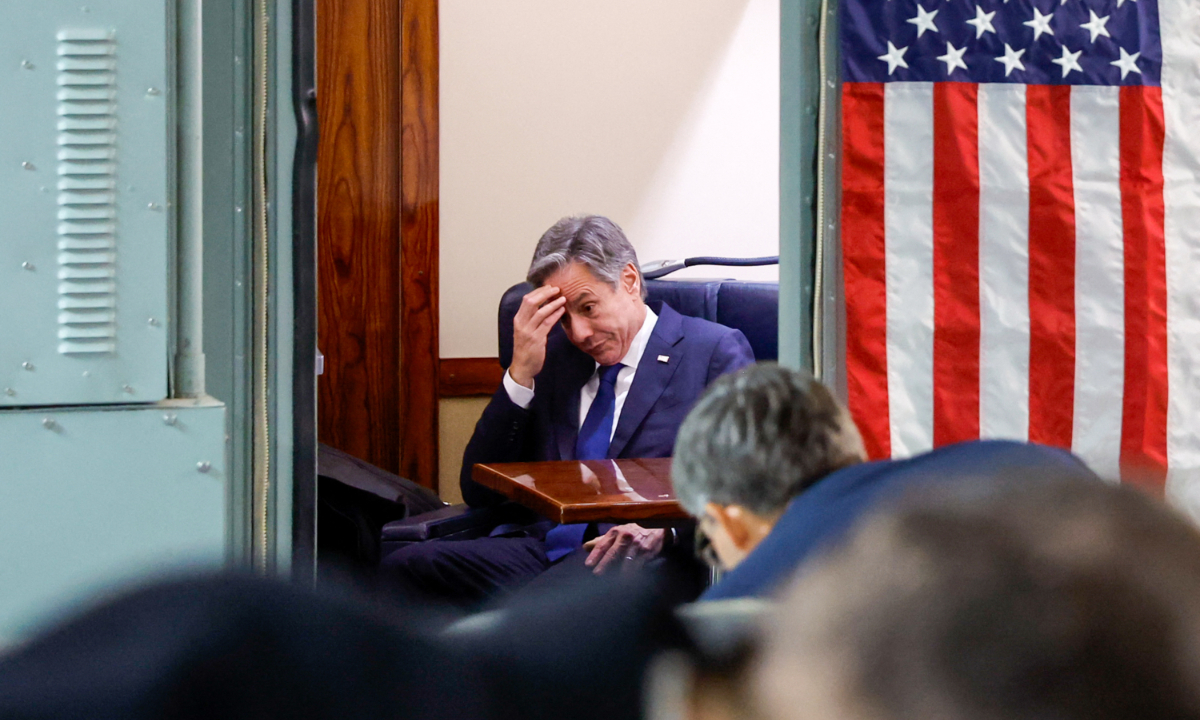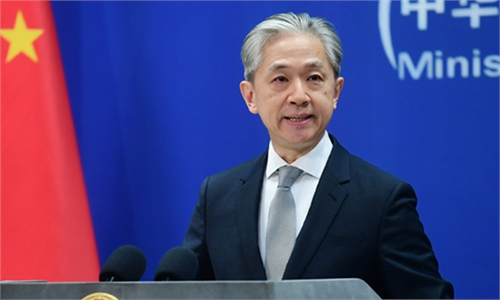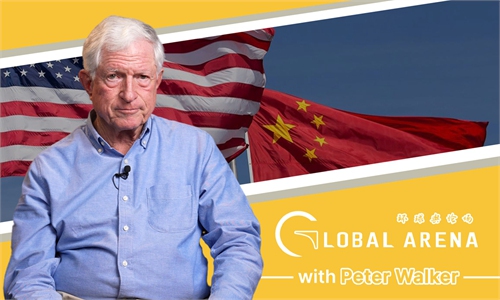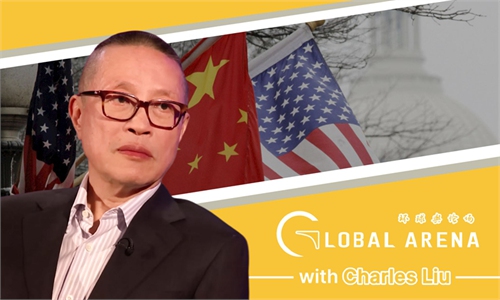China-US ties to remain bumpy in 2024 as Washington maintains US-centric, hegemonic foreign policy

Antony Blinken Photo:AFP
Chinese analysts predicted Thursday that China-US relations will continue to be bumpy in 2024 despite signs of stabilization, as the US will continue its US-centric and hegemonic planning of an international order and deal with China accordingly.
US Secretary of State Antony Blinken said at Wednesday's annual press briefing that the US will continue to engage with China "from a position of strength," per a press release on the State Department's website.
US partnerships in the Indo-Pacific have never been stronger, Blinken said, citing examples of its enhanced trilateral framework with Japan and South Korea, the AUKUS pact with the UK and Australia, upgraded comprehensive strategic partnerships with Vietnam and Indonesia, military pact with the Philippines, new embassies in Solomon Islands and Tonga, and the Quad.
But Blinken also listed achievements in reducing the risk that competition veers into conflict, including the meeting between the two heads of state in November, the resumption of cooperation on drug control, and the communication between the two militaries.
Blinken's remarks are a very typical expression of US-centrism and a divisive world view. It fully demonstrates that the US continues to handle international affairs, including its policy toward China, from a position of absolute advantage, Li Haidong, a professor at the China Foreign Affairs University, told the Global Times on Thursday.
The US is attempting to maintain a dominant position in the Asia-Pacific region and globally, commanding its allies to suppress and exclude US-defined "competitors" and "rivals," Li said, adding that this kind of outdated "Cold War-era perspective on the world order" brings division and unrest.
The US appears to have gained some supporters, but analysts see it more as yielding to US coercion than faithfully upholding a US-defined regional structure.
The US has mistaken its designs in the Asia-Pacific as a success and misinterpreted most regional countries' wishes for the region; this path also runs contrary to what American people want, as wielding bloc confrontation against China will cause a crisis outside the US and reduce the country's capacity to deal with domestic problems, Li elaborated.
The China-US relationship has shown signs of stabilization with contacts at different levels, to the world's relief, as relations between the world's two largest economies are of global significance, according to analysts.
However, the relationship will still be bumpy in 2024 as US-led and US-manipulated provocations on China's core interests will continue, and US presidential elections will add to the uncertainty.
The recent escalation between China and the Philippines over the dispute in the South China Sea has a strong US influence. A senior Republican claimed he will draft "sanctions from hell" to impose on China if it reunifies the island of Taiwan by force.
US politicians have a tradition of fuelling anti-China sentiment during election campaigns, and China is a "convenient scapegoat" for many of its domestic problems, Li said.
Sun Chenghao, a research fellow at the Center for International Security and Strategy in Tsinghua University, told the Global Times that ordinary Americans care little about international affairs, but the US' internal politics is hijacking its foreign policy, particularly in an election year, as candidates use their foreign policy agenda as vote bait and are liable to depart from the path of rationality.
Republicans believe the Biden administration is not harsh enough toward China and are likely to hype China-related topics and stir up troubles, as a stable China-US relationship will benefit Biden's campaign, not theirs, Sun said.
Analysts said that despite the US' destructive role, China will try its best to shape bilateral relations into a more stable pattern and prevent the US from giving free rein to Cold War-style geopolitical tactics, jeopardizing both countries, the Asia-Pacific and the entire world.



